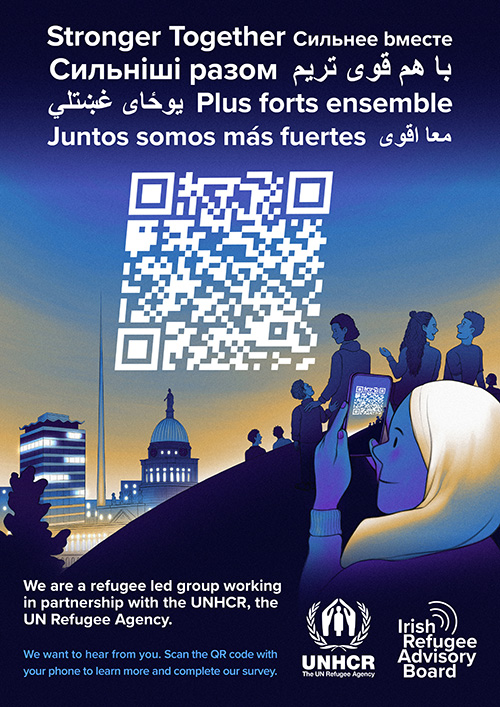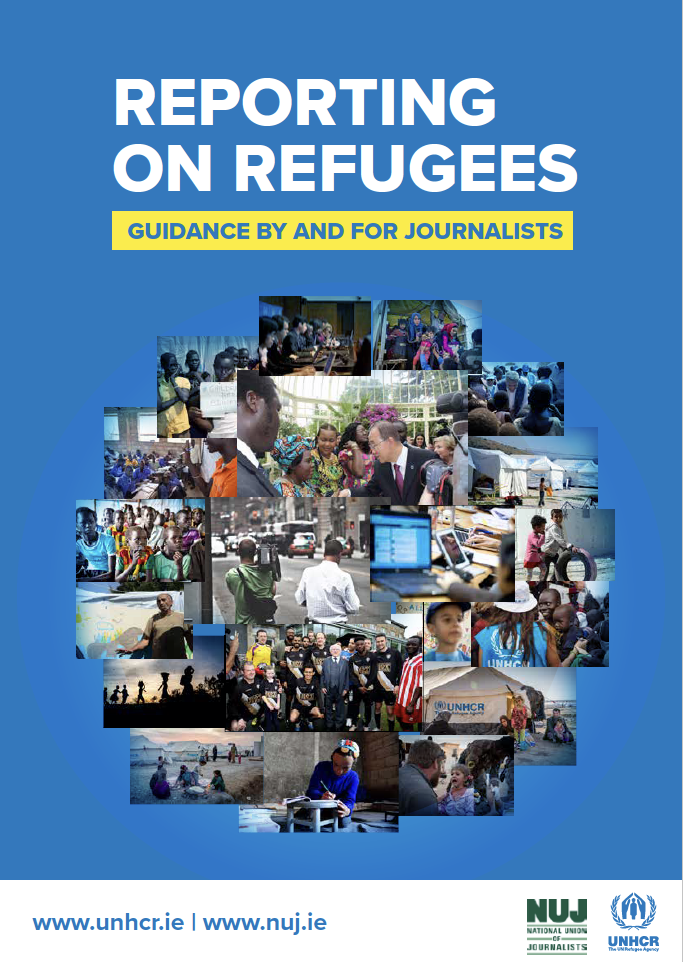UNHCR Global Appeal 1999 - Regional Overview: North America and The Caribbean
UNHCR Global Appeal 1999 - Regional Overview: North America and The Caribbean
United States and Canada
North America hosts more than 1.3 million refugees and other persons of concern to UNHCR. The United States and Canada receive asylum-seekers from virtually every refugee-producing country in the world. More than 110,000 persons applied for asylum in these two countries during 1997 alone. The same year, the United States and Canada also admitted some 70,000 and 10,000 refugees, respectively, for resettlement.
In the United States and Canada, UNHCR advocates international protection principles, promotes resettlement as a durable solution and seeks to reinforce awareness and support for refugees and the Office's humanitarian programmes. UNHCR plays an important advisory role in seeking to ensure that United States and Canadian legislation, regulations and policies incorporate international standards and reflect "best practices" in protection. The Washington and Ottawa offices also work to ensure that the resettlement opportunities provided by the United States and Canada respond to global needs, particularly for women-at-risk and other vulnerable refugees in urgent need of protection. In partnership with CARE Canada and Church World Services, UNHCR also offers counselling to thousands of persons seeking asylum or resettlement in the United States and Canada each year. UNHCR project legal staff in Washington, Ottawa, Montreal, Toronto and Vancouver also consult with lawyers representing asylum-seekers and prepare advisory opinions in cases that raise significant international protection issues. In addition to counselling individuals, UNHCR's project resettlement staff in Washington and Ottawa also travel widely to train UNHCR staff on the workings of the crucially important resettlement programmes in the United States and Canada. The United States and Canada are key actors in global humanitarian affairs. UNHCR's Washington and Ottawa offices play a vital role in ensuring that government officials, NGOs, the media and the broader public understand the protection and assistance needs of refugees and support UNHCR's efforts on their behalf. UNHCR's partner for public awareness and constituency-building in the United States is USA for UNHCR.
The Caribbean
The Caribbean has been relatively calm since the resolution of the 1994 Haitian refugee emergency. Fewer than 2,200 refugees are still in need of a durable solution in the Caribbean, notably some 1,000 African refugees in Cuba and 600 Haitian refugees in the Dominican Republic. Nevertheless, the potential for renewed refugee flows from within the Caribbean persists, and the Caribbean nations have also increasingly become a destination and transit point for asylum-seekers from other continents. UNHCR views the period of relative calm in the Caribbean as a "window of opportunity" for strengthening the framework for refugee protection and achieving durable solutions for the remaining refugees. UNHCR promotes accession to the international refugee law instruments, encourages the enactment of relevant legislation, facilitates the establishment of national institutions for the protection and assistance of refugees and provides protection training to government officials.
Competing priorities for resources prevent UNHCR from maintaining a permanent presence in the Caribbean. UNHCR covers Cuba from Mexico City and the Caribbean nations of Antigua and Barbuda, the Bahamas, Barbados, Dominica, the Dominican Republic, Grenada, Haiti, Jamaica, St. Kitts and Nevis, St. Lucia, St. Vincent and the Grenadines and Trinidad and Tobago from Washington.
In Jamaica and the Bahamas, UNHCR has established a relationship with prominent local attorneys who now serve as UNHCR's pro bono counsel in each country. UNHCR is identifying pro bono counsel in other key Caribbean countries and will train these attorneys in UNHCR's protection mandate and the Office's objectives in the region. The pro bono counsel will constitute the core of UNHCR's "protection network" in the region and help the agency maintain an effective presence in the Caribbean.
UNHCR's other principal objective is the consolidation of durable solutions for the remaining refugees in the Caribbean, notably in Cuba and the Dominican Republic. Most of the refugees in Cuba are Africans who came to Cuba years ago for studies. The solution strategy for these refugees includes both voluntary repatriation and resettlement, as appropriate. UNHCR is promoting the legal integration of Haitian refugees in the Dominican Republic on a case-by-case basis. Through the Centro de Trabajo Social Dominicano (CTSD), UNHCR also funds self-sufficiency projects for Haitian refugees in the Dominican Republic aimed particularly at female-headed households, with the objective of ending direct assistance to these refugees in 1999.
Budget US$
The budget does not include costs at Headquarters.
| Country | General programmes |
| Canada | 1,053,300 |
| United States of America | 3,835,900 |
| TOTAL | 4,889,200 |




